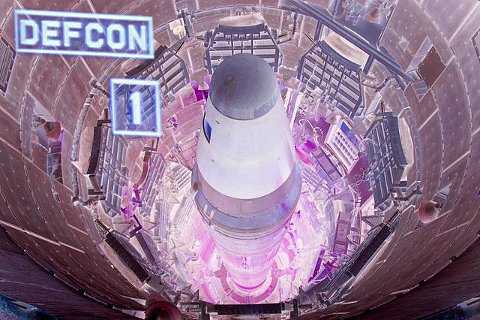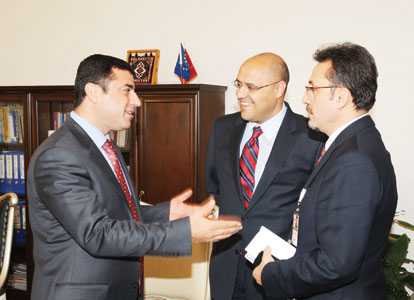The Turkish government would have every reason to try and steer Syria’s activists, and it looks like they might be succeeding

Syrian opposition demonstrators living in Jordan hold a poster of Turkish Prime Minister Erdogan during a rally in front of the Turkish embassy in Amman / Reuters
After seven months of wrangling to form a cohesive opposition movement, Syrian activists finally pulled it off with the formal announcement in Istanbul of the Syrian National Council (SNC), a body that mirrors the Libyan opposition’s National Transitional Council in seeking international recognition. But the opposition group, which formed in Istanbul and is headquartered there, appears to be increasingly influenced by the Turkish government, which has so far played a significant role in helping to usher Syria toward a post-Assad era.
There are some good reasons to have confidence in the SNC. The group began by reaffirming its desire to see a democratic Syria with constitutional guarantees on civil and political rights. It also says it rejects foreign military intervention, arguing that the only way to topple Assad is through “peaceful” and “legal” means. Many of its top officials — such as prominent U.S.-based dissident Radwan Ziadeh, newly appointed the head of the SNC’s foreign affairs bureau, and Paris-based university professor Burhan Ghalioum, a member of the body’s presidential council — are secular, intelligent, and friendly to the West.
In 2007, Ghalioun went on Al Jazeera and said, in Arabic, that the two biggest problems besetting the Arab world were dictatorship and clerical control of the media, adding that these were mutually reinforcing.
Of the SNC’s 230-member General Assembly, 55 seats are designated for grassroots domestic groups. Twenty seats apiece have also gone to selected special interests: Kurds, the Muslim Brotherhood, the “Damascus Declaration” (a group of reformist intellectuals who emerged briefly in 2000 on the mistaken assumption that Assad, newly in power, would be an improvement on his tyrannical father), and independents. Another 20 are saved for any additional stakeholders who may join the SNC at a later date.
The Muslim Brotherhood, which belatedly joined the body en masse, appears to be over-represented. Although they now hold 20 seats in the General Assembly and another 5 seats in the Secretariat, Hafez al-Assad all but destroyed the movement in the 1980s. Syrian oppositionists I’ve interviewed in the past several months say they believe that Islamists represent, at most, 30 percent of the opposition — and that figure, they say, is confined mainly to the ranks of the diaspora.
Nevertheless, the Brotherhood, along with a collection of independent Islamists, have wielded significant influence within the SNC, owing largely to the Obama administration’s “lead from behind” strategy in Syria, which has left Turkey as the main liaison to the opposition.
Turkish Prime Minister Recep Tayyip Erdogan and his Islamist Justice and Development Party (AKP) almost certainly prefer a fellow Sunni government in Syria to replace the current Alawite regime. Although previously friendly to Assad, AKP’s Turkey has since taken the lead among Islamic nations in condemning the regime’s violence. Turkey has hosted the majority of Syrian opposition conferences on its soil, from Istanbul to Antalya. Ten thousand Syrian refugees who fled a massacre in the Idleb province last June are currently living in tents on the Turkish border.
Erdogan probably reckons that if he can’t rein in the Syrian regime’s terror, he’d better cultivate the inevitable alternatives. Turkey will wish to salvage its strong commercial relations with its southern neighbor. But it’s more than that: the chance to lure Syria away from Shia Iran and toward fellow a Sunni Muslim power is likely too tantalizing to pass up. If Assad falls, then Iran will lose its only state ally in the Levant, weakening Hezbollah’s position in Lebanon and almost certainly ending the Hamas politburo’s residence in Damascus.
Since the Arab Spring kicked off, Erdogan has attempted to play a larger role in Arab politics, giving a recent speech in Egypt that included, among other things, public advice on how Egyptians shouldn’t be wary of “secular” democracy. When Egypt’s Muslim Brotherhood, which had rapturously received Erdogan in Cairo, blanched at the use of the term “secular,” Erdogan said that he’d been mistranslated in the national press and that he wasn’t referring to the Western model.
The trouble is, Turkey’s credibility among many Syrian protesters plummeted in recent weeks after it was reported that Turkish intelligence agents may have been involved in the abduction of Lieutenant Colonel Hussain Harmoush, a leading figure in the Free Syrian Army, a contingent of defected soldiers. Harmoush went missing on August 29, after which his brother quickly claimed that he’d been ambushed in a Turkish refugee camp after government security contacts betrayed him, handing him over to Assad’s infamous mukhabarat secret police.
Turkey denies any responsibility and has vowed to conduct a government inquiry. But the damage was done. Erdogan’s convoy in Egypt was surrounded last month by angry Syrians chanting “Erdogan coward” and “Erdogan, where is Harmoush?” Shortly thereafter, Harmoush appeared on Syrian state TV where he made an abject “confession,” almost certainly forced, that blamed every imaginary bugbear for the regime’s troubles except the regime itself. Fellow activists now fear him dead.
Another headache for Ankara will be the SNC’s National Consensus Charter language on Kurdish rights, which are tightly curtailed in Turkey. The charter calls for “constitutional recognition of Kurdish national identity and the creation of a just democratic formula for the Kurdish question within the framework of unity of the homeland.” Though vague (does this allow for a semi-autonomous Kurdish governorate in Syria? formal recognition of the Kurdish language?) it is far more broad-minded than any AKP policy on Turkey’s own restive Kurdish population, which can now point to the Turkish-backed SNC and say, “What about us?” The Assad regime is increasingly aggressive against Syrian Kurds’ participation in this revolution: Syrian forces recently assassinated Kurdish SNC member Mishal Tammo and closed the border with Turkey to prevent more Kurds from coming in to demonstrate.
Syrian security forces have, in the last several weeks, conducted a dragnet of prominent activists as well as rebel soldiers, thought to be as many as 10,000. Rape and organ theft are allegedly new state policies of intimidation and repression. Armed protestors in Homs have lately begun to fight back, and in a sectarian fashion, fueling speculation that Syria is now poised for a full-on civil war — exactly the outcome Assad has long tried to provoke.
The situation is dire and bound to get worse. The SNC’s responsibility now is to shore up international recognition and go the way of the Libyans in presenting a coherent framework for democratic government. Syria’s transition stands to be the most dangerous and crucial for the Middle East — as Turkey plays a greater role with the Syrian opposition, it will have an ever-larger say in the political landscape of post-Assad Syria.






